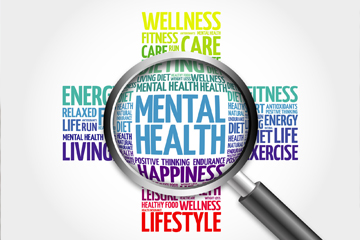Importance of Mental Health

Mental health refers to a person’s emotional, psychological, and social well-being, making it as important as physical fitness for a healthy and balanced life. Being healthy emotionally can promote productivity and effectiveness in personal as well as professional activities. It plays an important part in the health of your relationships, allows you to adapt to changes in your life, and cope with adversity.
Prevalence of Mental Health Conditions
According to the 2022 National Institute of Mental Health (NIMH) report, 59.3 million American adults (23.1%) have a mental health condition. The most common types of mental illnesses include mood disorders, anxiety disorders, eating disorders, social withdrawal, feelings of hopelessness, anger and prolonged sadness, suicidal thoughts, and substance abuse.
Lifestyle Changes to Improve Mental Health
- Quit Drinking
A study published in 2019 that included 10,368 adults found that the men and women who were lifetime abstainers from alcohol had the highest level of mental well-being at the start of the study. Women who were moderate drinkers who quit drinking during the study also benefited from a boost to their mental health, with levels of mental well-being close to those of lifetime abstainers within four years of quitting.
- Cut Down on Social Media Use
With the rise of social media, people have become addicted to it. Many studies have looked into its effect on our mental health. A British study surveyed 12,866 teens aged 13 to 16 and found that checking one’s phone several times a day was associated with lower mental well-being, especially in girls. This could be because social media use affects sleep and physical activity, which are linked with improved mental health. In the US, a study conducted among adults who spent one hour a day on Facebook found that those who quit the social media site reported feeling happier. It also helped them socialize better with family and friends.
- Eat More Fruits and Vegetables
Eating fresh fruits and vegetables can improve your mental health. US researchers considered data from 245,891 phone surveys and found that adults with a high consumption of fast food like fries and soft drinks rather than healthy meals, were more likely to report symptoms of moderate or severe psychological distress. This shows that poor eating habits can affect your mental health.
- Include Supplements in Your Diet
Apart from eating healthy, taking supplements is also essential. Results published in September 2019 from the world’s largest review on nutritional supplements and mental health symptoms showed that certain supplements could help with some of the mental health conditions when taken in conjunction with conventional treatments. The research conducted among 10,951 people found that omega-3 fatty acids could reduce depressive symptoms more than just antidepressants alone. It also showed that the amino acid N-acetylcysteine could be beneficial for mood disorders and schizophrenia.
- Get Proper Rest and Sleep
Getting enough sleep and rest is essential for regulating stress. People have different sleeping patterns but if your quality of sleep is poor then you should consider sleep hygiene techniques that include measures like adjusting caffeine use, limiting exposure to the bed (regulating your sleep time and having a limited time to sleep), and making sure you get up at the same time in the morning.
- Stay Close to Nature
- Surround Yourself with Positive Influences
Being with family and people with strong social connections could help improve mental health. So, make plans with supportive family members and friends, or seek out activities where you can meet new people, such as a club, class, or support group.
Enough exposure to sunlight helps levels of the mood-maintaining chemical serotonin. It improves vitamin D and helps regulate the sleep-wake cycle. Exposure to sunlight also minimizes the chances of skin cancer. Consider limiting your exposure to environmental toxins, chemicals, and pollutants, including “noise” pollution, and cutting down on your mobile phone, computer, and TV use if they’re excessive. Similarly, spending time with nature like plants and animals can improve the feeling of well-being.
Good mental health is crucial to your overall sense of well-being. Improving your mental health means doing more of what feels good. The above-mentioned practices are both nurturing and enjoyable, helping you stay fit both mentally and physically.
Start your journey to better mental health – Try these lifestyle changes today!